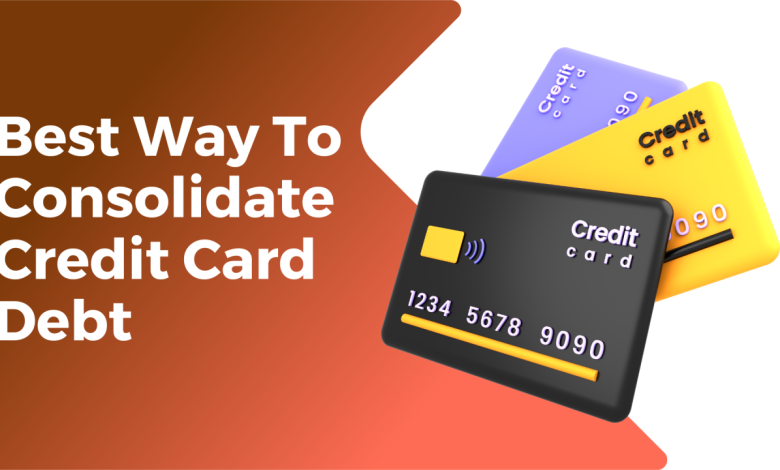Top Strategies for Consolidating Credit Card Debt

Managing multiple credit card payments can be overwhelming, especially when debts start to pile up. Credit card consolidation offers a way to simplify your finances and potentially lower your overall interest rates. This guide will walk you through what credit card consolidation is and provide five practical methods to help you regain control of your financial situation.
What Is Credit Card Consolidation?
Credit card consolidation is a financial strategy that combines multiple credit card debts into a single, manageable payment. Instead of juggling different due dates and interest rates, consolidation allows you to streamline your payments into one monthly installment. This can simplify your financial management and may help you save money if you secure a lower interest rate. It’s an effective way to take charge of your finances and make debt repayment more manageable.
5 Practical Methods for Consolidating Your Debt
Here are five effective methods to consider for consolidating your credit card debt:
Balance Transfer Credit Cards
A balance transfer credit card lets you move existing credit card debt to a new card with a 0% introductory interest rate. This can provide significant savings if you pay off the debt before the promotional period ends. To qualify, you’ll need a good credit score, and be mindful of any balance transfer fees and the higher APR that may apply after the introductory period. If you are disciplined with payments, this method can offer substantial relief.
Personal Loans
Using a personal loan to consolidate credit card debt involves taking out a loan to pay off your credit cards, leaving you with a single loan to manage. This option often requires a lower credit score compared to other methods. Shop around for loans with favorable interest rates and terms that fit your budget. This approach can simplify your payments and potentially reduce your overall interest expense.
Home Equity Loans
A home equity loan allows you to borrow against the equity in your home, usually offering a lower interest rate than personal loans. However, be cautious, as failure to repay the loan could put your home at risk. This option is best suited for homeowners with a stable financial situation seeking a lower interest rate. It’s important to weigh the risks and benefits before proceeding.
401(k) Loans
Borrowing from your 401(k) can help you pay off credit card debt without affecting your credit score. However, this should be a last resort after exploring other options. Be cautious with employer-sponsored plans due to potential penalties and risks. While 401(k) loans may offer lower interest rates, they come with short repayment periods and can impact your retirement savings.
Debt Management Plans (DMPs)
A Debt Management Plan consolidates all your credit card debts into one monthly payment, often with reduced interest rates. Managed by a credit counseling agency, a DMP typically lasts three to five years. While there may be fees involved, this plan can simplify your debt repayment and help improve your credit score over time. Make sure to understand all associated costs and ensure the plan aligns with your financial goals before committing.
Does Debt Consolidation Affect Your Credit Score?
Debt consolidation itself does not necessarily harm your credit score and can often lead to improvements if managed properly. By consolidating your debt, you simplify your repayment process and may find it easier to stay current on payments. Although opening new credit accounts or taking out loans may cause a temporary dip in your credit score, making on-time payments and reducing your overall debt can lead to a better credit score over time. The key is to maintain responsible financial habits throughout the consolidation process.
Conclusion
Achieving financial stability is a long-term commitment that requires careful planning and discipline that usually blogs like eurekafund.org share with the public. Credit card consolidation can be a powerful tool for simplifying your finances and potentially saving money. Whether you opt for a balance transfer credit card, personal loan, home equity loan, 401(k) loan, or a Debt Management Plan, each method has its own advantages. The most important factor is not just consolidating your debt but also managing your finances responsibly. Choose the strategy that best fits your financial goals and move forward with confidence towards a future with reduced financial stress and greater peace of mind.



